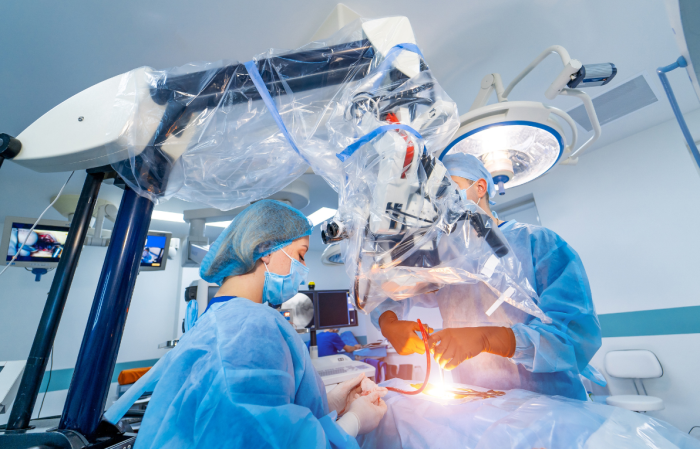In recent years, robotic heart surgery has emerged as an advanced alternative to traditional open-heart surgery, offering patients a less invasive and more precise surgical option. This technique utilizes robotic systems controlled by a surgeon, allowing for intricate movements and detailed work within the heart. Comparing robotic heart surgery with traditional methods reveals key differences in approach, recovery, and patient outcomes, helping patients and healthcare providers make informed decisions based on the specific needs of each case.
Understanding Robotic Heart Surgery: How It Works
Robotic heart surgery uses a sophisticated robotic system, which is operated by a surgeon seated at a console nearby. The system translates the surgeon's hand movements into precise, scaled-down actions using small instruments inserted through tiny incisions. The high-definition, 3D visualization provides an enhanced view of the heart, enabling surgeons to perform delicate procedures with accuracy that is often challenging to achieve in traditional surgery. Although the robot executes the movements, it is always under the control and guidance of a trained cardiac surgeon, ensuring a high level of expertise and precision.
Key Differences Between Robotic and Traditional Heart Surgery
The primary difference between robotic and traditional heart surgery lies in the technique and the level of invasiveness. Traditional heart surgery typically involves a large incision through the chest (sternotomy), which requires the surgeon to open the chest cavity and expose the heart directly. In contrast, robotic surgery requires only small incisions, through which robotic arms and a camera are inserted. The approach of robotic surgery minimizes trauma to the chest and reduces recovery time, making it a preferable option for certain patients, particularly those for whom a shorter recovery is important.

Minimally Invasive Nature of Robotic Heart Surgery
One of the biggest advantages of robotic heart surgery is its minimally invasive nature. Instead of the traditional open-heart procedure, which can require a significant recovery period due to the size of the incision, robotic surgery involves only small incisions, leading to less bleeding, decreased pain, and a quicker return to normal activities. This minimally invasive approach is particularly beneficial for patients who may have difficulty with the recovery demands of more invasive procedures, such as older adults or those with other health conditions.
Enhanced Precision and Control with Robotic Assistance
The robotic system enhances the precision and control a surgeon can achieve, allowing for more delicate and complex movements than human hands alone. The robotic arms can rotate in ways that human wrists cannot, giving the surgeon greater maneuverability and access to hard-to-reach areas. This precision is invaluable in cardiac procedures where even slight movements can affect outcomes. As a result, robotic surgery often leads to more accurate repairs and can reduce the likelihood of complications, such as unintentional tissue damage.
Smaller Incisions: Reduced Scarring and Improved Healing
Another advantage of robotic heart surgery is the use of smaller incisions, which significantly reduces scarring and speeds up the healing process. In traditional surgery, the large incision down the chest can leave a prominent scar, while robotic procedures use small entry points that result in less noticeable scarring. This aspect is particularly appealing to patients concerned about cosmetic outcomes and contributes to faster wound healing, as there is less tissue disruption. Patients often experience lower levels of post-operative pain and may have a more positive recovery experience overall.
Lower Risk of Infection with Robotic Techniques
The reduced incision size and minimally invasive approach in robotic heart surgery contribute to a lower risk of post-operative infection. Large incisions in traditional surgery are more susceptible to infections and may require extended hospital stays for monitoring. With robotic heart surgery, the smaller incisions mean less exposure of internal tissues, thereby lowering the chance of infection. Additionally, the quicker recovery times associated with robotic procedures further reduce the likelihood of infection, as patients are able to resume normal activities sooner and face fewer complications associated with prolonged immobility.
Shorter Hospital Stays and Faster Recovery Time
Robotic heart surgery typically involves smaller incisions and less tissue trauma, which leads to shorter hospital stays and quicker recovery times. Patients can often return to daily activities sooner than they would after traditional open-heart surgery, making this approach appealing for those seeking a faster path back to normal life.
Reduced Pain and Discomfort Post-Surgery
One of the key benefits of robotic heart surgery is reduced postoperative pain. The minimally invasive nature of robotic procedures means smaller incisions and less disruption to the chest and surrounding tissues, leading to less discomfort and a smoother recovery experience.

Increased Accuracy in Complex Heart Procedures
Robotic systems enhance surgical precision, making it easier for surgeons to navigate complex heart procedures. With the ability to make highly accurate movements, robotic tools help improve outcomes in delicate areas of the heart where precision is critical.
Benefits of 3D Visualization in Robotic Heart Surgery
3D visualization in robotic heart surgery offers an enhanced view of the surgical area, allowing surgeons to see and operate with greater detail. This improved perspective helps with precise movements, which is especially important in heart surgeries where intricate work is required.
Patient Outcomes: Success Rates of Robotic vs. Traditional Methods
Studies suggest that robotic heart surgery can achieve comparable or even higher success rates compared to traditional methods. Patients often experience fewer complications and quicker recoveries, which translates to positive outcomes and satisfaction with the procedure.
Robotic Surgery and the Reduced Need for Blood Transfusions
Robotic heart surgery often results in less blood loss than open-heart surgery, which can reduce the need for blood transfusions. This benefit helps lower the risk of complications associated with transfusions and promotes faster recovery.
Lower Risk of Complications Compared to Open Surgery
The minimally invasive nature of robotic surgery leads to a lower risk of certain complications, such as infection and excessive bleeding, compared to open surgery. By reducing tissue trauma, robotic procedures support a safer surgical experience for patients.
Impact of Robotic Surgery on Long-Term Quality of Life
Patients who undergo robotic heart surgery often report an improved quality of life post-recovery. Reduced scarring, minimized pain, and faster return to daily activities contribute to long-term satisfaction and a better overall experience.
Ideal Candidates for Robotic Heart Surgery
Ideal candidates for robotic heart surgery include patients requiring minimally invasive interventions, such as valve repair or atrial septal defect closure. However, patient suitability depends on individual health factors and should be assessed by a cardiac specialist.
The Role of a Skilled Surgical Team in Robotic Procedures
The success of robotic heart surgery largely depends on the expertise of the surgical team. Surgeons with specialized training in robotic techniques are essential for achieving optimal outcomes, as they can fully leverage the technology’s capabilities.
Cost Considerations: Is Robotic Surgery Worth the Investment
While robotic heart surgery can be more costly than traditional surgery, the potential benefits—such as faster recovery, reduced complications, and shorter hospital stays—often make it a worthwhile investment for suitable patients.
Future Prospects: Advancements in Robotic Heart Surgery
Advancements in robotic technology are constantly evolving, with future innovations likely to make robotic heart surgery even safer, more precise, and widely available. Enhanced tools, improved visualization, and AI integration are some areas expected to advance the field.
Medications for Managing Symptoms Before and After Robotic Surgery
Learn about the medications used to manage symptoms related to robotic heart surgery. This section discusses various pharmaceutical options available before the procedure to prepare patients, as well as post-operative medications to help manage pain, prevent infections, and promote recovery.
Latest Innovations in Robotic Heart Surgery Techniques
Stay updated on the latest innovations in robotic heart surgery. This section explores groundbreaking techniques and technologies enhancing precision, reducing recovery times, and improving outcomes in cardiac procedures performed using robotic assistance.
Conclusion: Why Robotic Surgery Is Shaping the Future of Cardiac Care
Robotic heart surgery represents a transformative approach to cardiac care, offering patients a less invasive option with numerous benefits. As technology continues to progress, robotic-assisted procedures are likely to become an increasingly preferred choice for both patients and surgeons.
Best Robotic Heart Surgery in India
The Best Robotic Heart Surgery in India offers a minimally invasive approach to complex heart procedures, utilizing robotic technology to improve precision and reduce recovery time.
Robotic Heart Surgery Cost in India
The robotic heart surgery cost in india is competitive, offering patients affordable options for high-precision heart surgery with transparent pricing and accessible care.
Best Robotic Heart Surgeons in India
The Best Robotic Heart Surgeons in India are highly trained in robotic techniques, providing personalized care and expert precision in complex heart surgeries.
FAQ
What are the main benefits of robotic heart surgery?
Robotic heart surgery offers shorter recovery times, reduced pain, increased precision, and often a lower risk of complications compared to traditional methods.
How does robotic heart surgery improve recovery time?
With smaller incisions and less tissue disruption, robotic surgery enables faster healing and shorter hospital stays, helping patients resume daily activities more quickly.
Are there any risks unique to robotic heart surgery?
While robotic surgery has a lower overall risk profile, it does carry specific risks like equipment malfunctions or complications due to limited field access in the chest.
Is robotic heart surgery suitable for all heart patients?
Not all patients are ideal candidates; suitability depends on individual health factors and the type of heart condition, which should be evaluated by a cardiac specialist.
How does robotic heart surgery impact scarring and pain?
Robotic surgery typically results in smaller scars and less postoperative pain due to smaller incisions and less disruption of surrounding tissues.